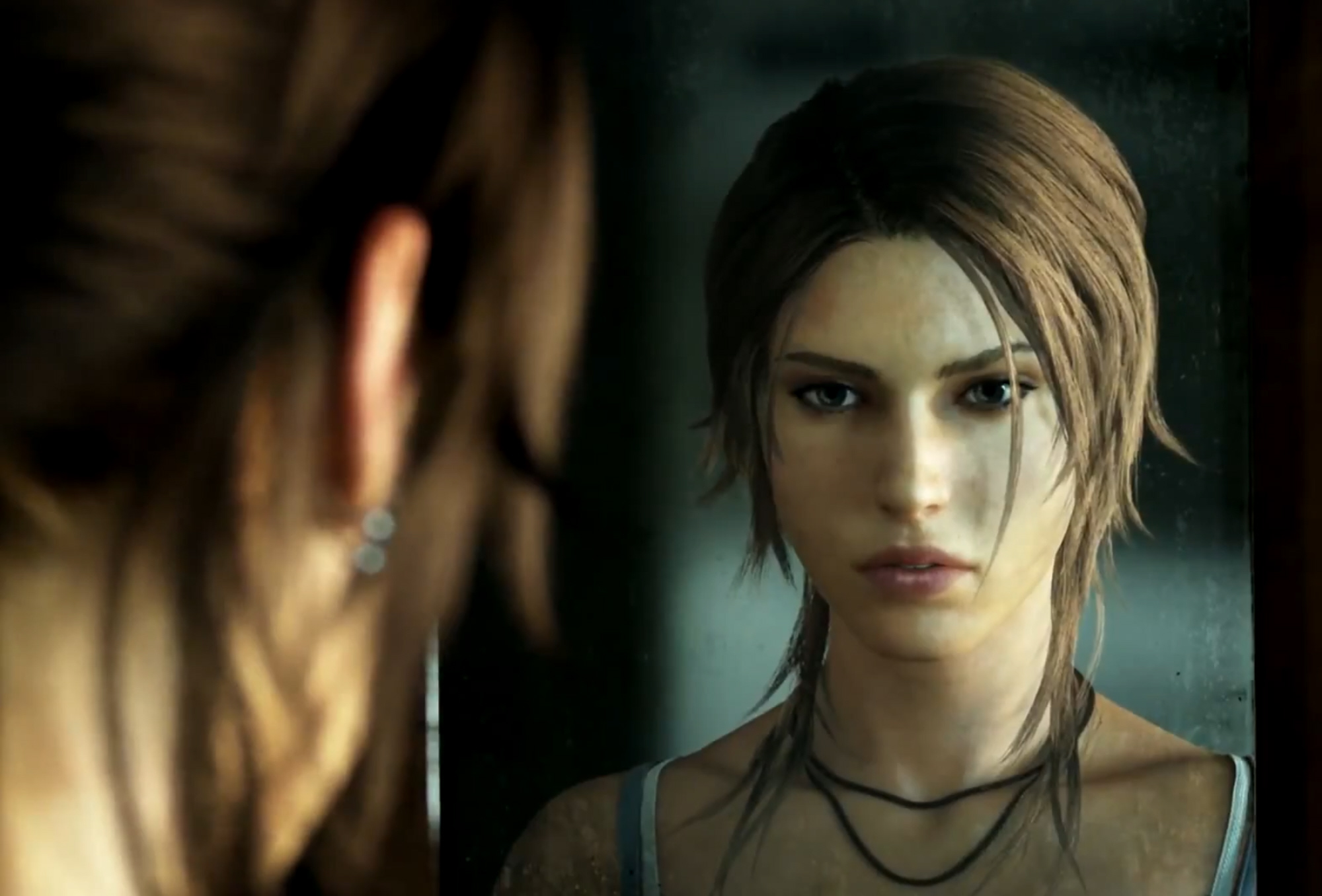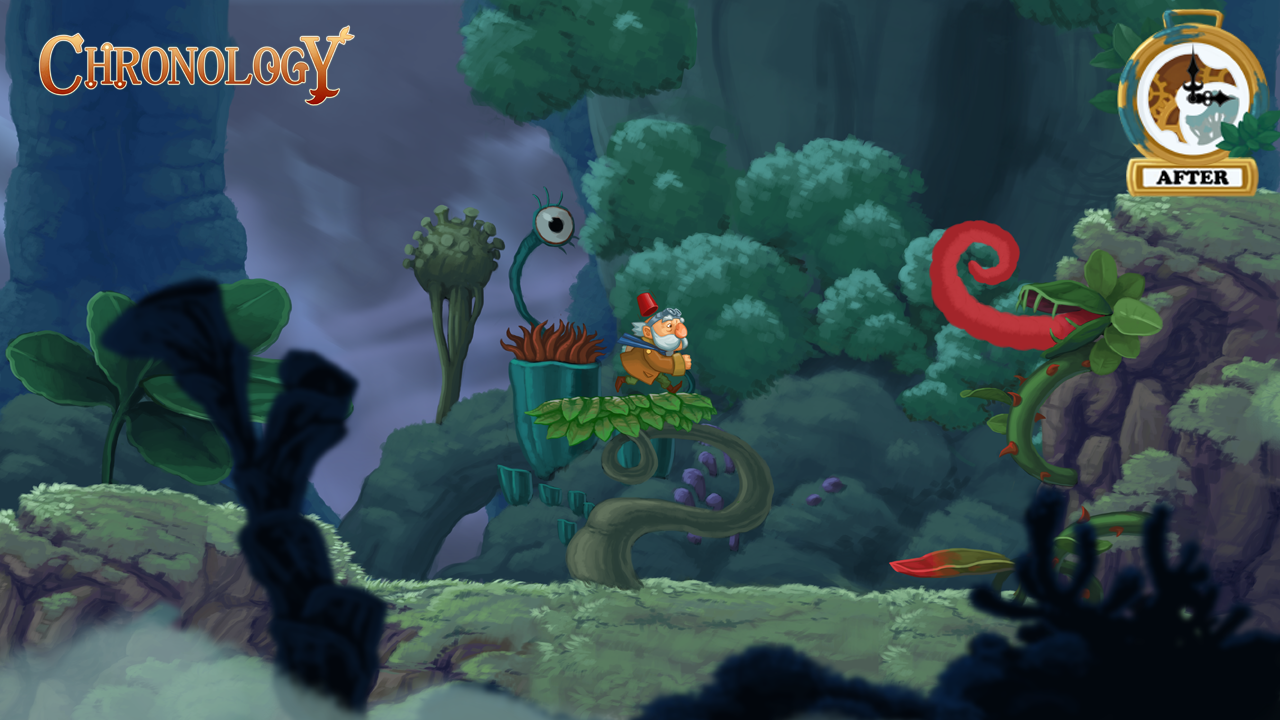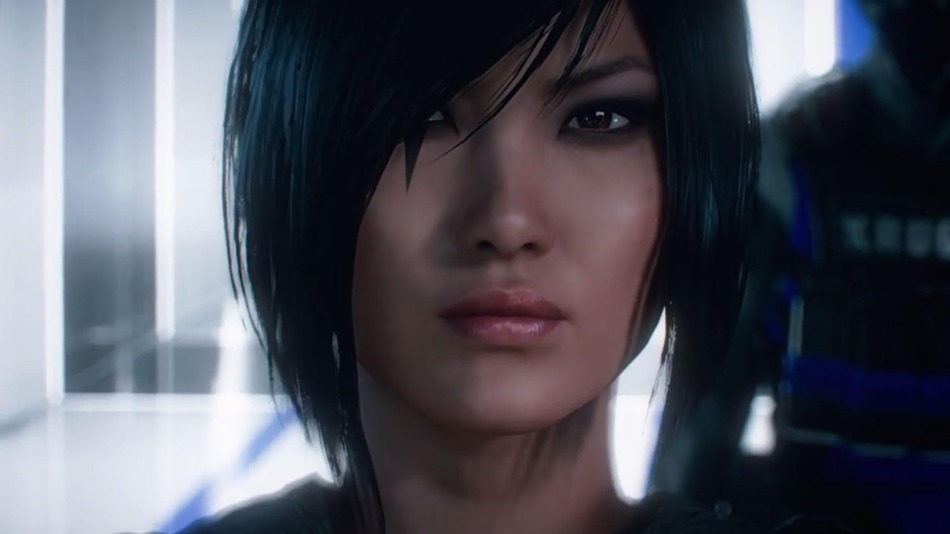Space travel has always been fascinating to me. Not fascinating enough to make me want to actually go to space, but definitely intriguing enough to watch it from afar. I blame this, in part, on my mother. When I was a child we watched Star Trek every Sunday. It was one thing that I always looked forward to. Traveling to new worlds, new civilizations with Captain Kirk, Mr. Spock, and, of course, Lt. Uhura. Every week we got to explore new planets and meet new alien races (who surprisingly always spoke English as far as I remember). But there was also always danger, at least one crew member was always lost on the mission. That danger always made it so much more exciting.
That love of space travel is also what has drawn to space exploration games like EVE Online (which I played through beta and launch), Freespace 2, Civilization: Beyond Earth, and now Hello Games’ No Man’s Sky. The earlier space exploration games didn’t do much in terms of focusing on culture and the effect that your excavation has on the environment. At least not explicitly, because much was left to the imagination of the player.
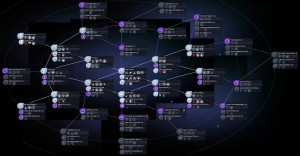 I have been a huge Civilization fan for a long time. There is something about exploring, conquering, and negotiating that grabs me every time and when the game added a multiplayer element I was over the moon happy (no pun intended) because it meant that I got to pit myself against friends and relations to see who would best grow their world footprint and what means they would use to do it. And when it was announced that Fireaxis was going to be releasing Civilization: Beyond Earth and that I would get the chance to take my civilization show on the road I got a little giddy. And then the game launched. The skill tree system was totally different and almost incomprehensible and the game basically forced you to become a colonizer of the worst kind. When you settled on any given planet you were pretty much guaranteed to “displace” some of the planet’s inhabitants and how you dealt with their reaction to the displacement allowed a totally different narrative to evolve. You could either stay pretty much to yourself and not try to do more damage (and guarantee that other settlers would kill you) or you could deal with the fact that you were pretty much going to commit alien genocide and either make friends with like-minded colonizers or find yourself subject to the judgement of settlers who berate you murdering the indigenous population. But the biggest problem that I had with the game (technology web changes aside) was the fact that you really didn’t suffer any lasting effects for murdering the native aliens. Yes, people might get mad for a while and the same went for the other native populations, but you could smooth things over with the other settlers and slaughter all of the natives and go about your business. So while I really enjoyed playing the game for a few days, as these things became more apparent the game itself became less fun for me.
I have been a huge Civilization fan for a long time. There is something about exploring, conquering, and negotiating that grabs me every time and when the game added a multiplayer element I was over the moon happy (no pun intended) because it meant that I got to pit myself against friends and relations to see who would best grow their world footprint and what means they would use to do it. And when it was announced that Fireaxis was going to be releasing Civilization: Beyond Earth and that I would get the chance to take my civilization show on the road I got a little giddy. And then the game launched. The skill tree system was totally different and almost incomprehensible and the game basically forced you to become a colonizer of the worst kind. When you settled on any given planet you were pretty much guaranteed to “displace” some of the planet’s inhabitants and how you dealt with their reaction to the displacement allowed a totally different narrative to evolve. You could either stay pretty much to yourself and not try to do more damage (and guarantee that other settlers would kill you) or you could deal with the fact that you were pretty much going to commit alien genocide and either make friends with like-minded colonizers or find yourself subject to the judgement of settlers who berate you murdering the indigenous population. But the biggest problem that I had with the game (technology web changes aside) was the fact that you really didn’t suffer any lasting effects for murdering the native aliens. Yes, people might get mad for a while and the same went for the other native populations, but you could smooth things over with the other settlers and slaughter all of the natives and go about your business. So while I really enjoyed playing the game for a few days, as these things became more apparent the game itself became less fun for me.
Over the last week I have started to think back over the time that I spent playing Civilization: Beyond Earth because of the time that I have spent playing No Man’s Sky. As I have been playing No Man’s Sky one of the things that have been most interesting to me in the language/cultural component. Sean Murray, No Man’s Sky creator, has said of the language learning component of the game
I think most players will never become fluent, unless it’s specifically something they’re seeking out,” Murray said. That won’t be necessary, anyway — the point of speaking with others in No Man’s Sky is to accomplish tasks like “trading, or asking for technology, or sharing crafting recipes.
But this is the very thing that fascinates me most. Learning about the beings that live on the planet that you are exploring and becoming familiar with their language and culture rather than just robbing the land of metals and gems, upgrading your technology, and moving on to the next planet to do the same thing again and again. In this way No Man’s Sky lends itself more to a feminist approach to archeology than colonization.
In her essay, “Has Feminism Changed Archeology?”, Margaret W. Conkey argues that feminism has impacted archaeological practices in at least three distinct ways and it is the second that I want to focus on (at this moment) when thinking about No Man’s Sky.
A second arena that has been the subject of renewed interest and increasing sophistication, thanks in large part to feminist-inspired archaeology, is visual representations (art, imagery, iconography). Of course, here is a domain of cultural production where “women” might be more immediately and convincingly “visible,” because they are actually depicted in murals, as figurines, on monuments, or in rock art.
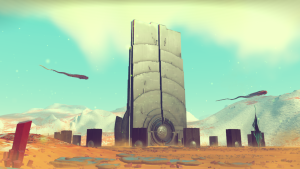 It is this focus on the visual representations in No Man’s Sky (and the bits of language learned by studying each monument/knowledge stone) that brings us closer to the planet’s beings, allowing us to converse with them, improving trade relations, and improving our standing in their eyes. It is this process that requires great care and time taken that, for me, makes No Man’s Sky a game that is different from so many other (space) exploration games. While other games may give us tangential access to some knowledge about the cultures that we are coming into contact with they do not seem to place the same level of import on them in that we can still understand the languages that they speak.
It is this focus on the visual representations in No Man’s Sky (and the bits of language learned by studying each monument/knowledge stone) that brings us closer to the planet’s beings, allowing us to converse with them, improving trade relations, and improving our standing in their eyes. It is this process that requires great care and time taken that, for me, makes No Man’s Sky a game that is different from so many other (space) exploration games. While other games may give us tangential access to some knowledge about the cultures that we are coming into contact with they do not seem to place the same level of import on them in that we can still understand the languages that they speak.
It is this suggested (even desired) level of engagement that lends No Man’s Sky to a read through a feminist lens that calls upon the player to experience the worlds around her slowly and with feminist ethics of care (that gets reinforced by the planets’ sentinels that punish greed and planetary destruction) so as to not gloss over the cultural components that have historically been ignored or destroyed in the name of progress.
Ultimately, No Man’s Sky has released to mixed reviews because many people (myself included) were really unsure of what they were going to be able to do (and because of mixed responses from the developers prior to launch). Would we be able to see, trade, or explore with other players? Would we be able to communicate with aliens and learn their languages? Would there be pets? Would this game be an amalgam of EVE Online, Mass Effect, and WoW? And of course when it released and was simultaneously all and none of these other games some folks got upset. Me? Not so much. I didn’t expect anything. I didn’t want anything except the ability to explore space. I wanted to see the possibilities of procedurally generated worlds and species. I wanted to see what was possible. And in the end I am happy because I got more than I bargained for.

